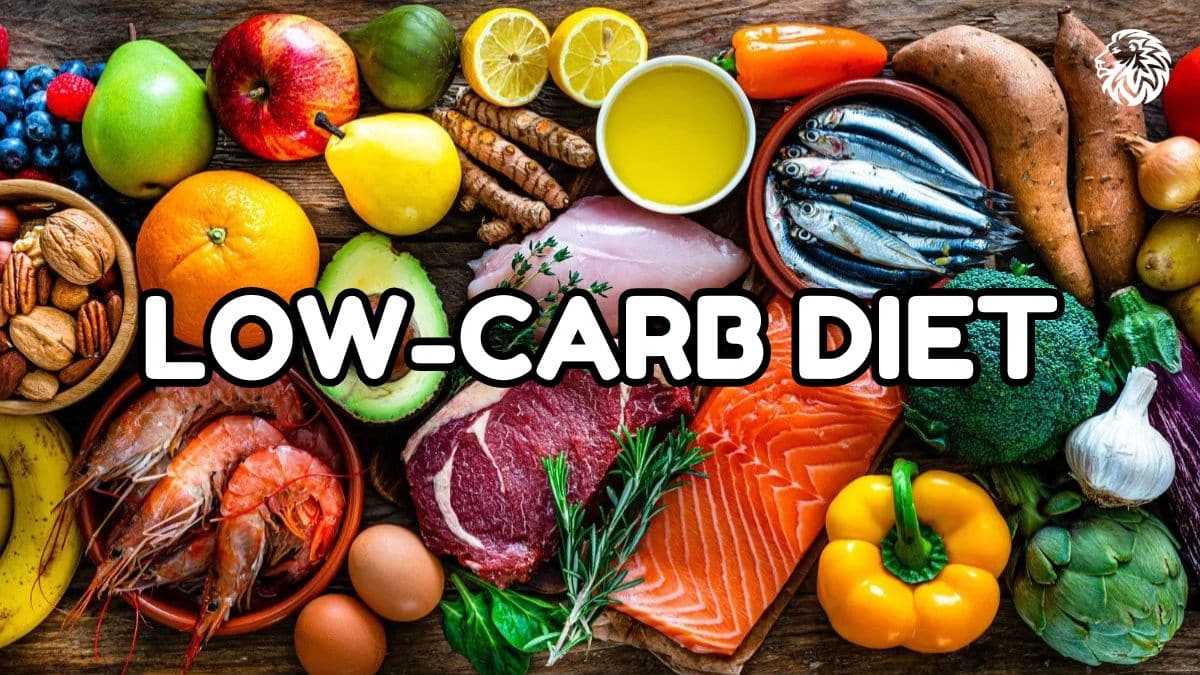Understanding Low-Carb Diets
Benefits of Low-Carb Diets
Low-carb diets can be pretty darn handy, especially if you’re aiming to shed those extra pounds and give your health a boost. By focusing on more protein and healthy fats while cutting down on carbs, you can see some pretty neat perks.
- Weight Loss: Slashing those carbs can help you drop the weight and keep it off. You’ll eat less but still feel stuffed, making the whole weight thing a bit easier. Curious? Check out our low-carb diet for weight loss.
- Stable Blood Sugar: Saying goodbye to many carbs helps keep your blood sugar in check, which is a big bonus if you’re dealing with diabetes. For more details, pop over to low-carb diet for diabetes type 2.
- Heart Healthier: Low-carb eating can boost the good HDL cholesterol and tackle those pesky triglycerides, which is awesome news for your ticker. Get the scoop on low carb diet and cholesterol.
How Low-Carb Diets Help PCOS
Polycystic Ovary Syndrome (PCOS) bugs quite a few women with symptoms like unwanted weight, crazy cycles, and tricky fertility. Good news—diets like keto can help tame some of this chaos (Cleveland Clinic).
- Bye-Bye Extra Pounds and Irregular Periods: A low-carb lifestyle can help you lose weight and sync up those periods. Some women even find they can get pregnant without extra meds.
- Fertility Boost: Less carbs mean lower insulin levels, which is a fertility friend for those with PCOS. Turns out, keto could be your new BFF for pregnancy chances.
- Kicking Insulin Resistance: Cutting carbs can make your body handle insulin better, taming symptoms like weight gain and high blood sugar from PCOS.
Key Benefits of Low-Carb Diets for PCOS
| Benefit | Description |
|---|---|
| Weight Loss | Helps shed and keep off those pounds, easing PCOS troubles. |
| Improved Fertility | Balances insulin and boosts your reproductive game. |
| Blood Sugar Control | Keeps those blood sugar swings at bay, fighting off diabetes risk. |
Don’t forget, having a doc and dietitian on your side when trying keto for PCOS is a smart move (Cleveland Clinic).
Starting a low-carb diet isn’t always a breeze, but with some solid advice, you can tackle those PCOS symptoms head-on. Ready to dive in? Check out our guide for low carb diet for beginners.
Implementing a Low-Carb Diet for PCOS
Transitioning to a Low-Carb Diet
Switching to a low-carb diet might just be the trick for managing PCOS. It’s about tweaking your lifestyle a bit—with food choices at the forefront. Here’s how you can make it easier:
- Educate Yourself: Dig into what makes a low-carb diet tick. Figure out which foods are your pals and which ones you’d better keep at arm’s length. Check out our guide on foods to avoid on a low-carb diet for some extra help.
- Start Gradually: Don’t rush it. Slowly cut down on those carbs. Imagine inching your way down a comfy slide rather than jumping off a cliff. Little by little, you’ll swap out more carbs, making the whole process less tricky.
- Plan Your Meals: Map out your meals and snacks ahead of time. It’ll save you from those sneaky high-carb temptations that lurk when you’re unprepared. Need some inspiration? Our low carb meal plan is a good place to start.
- Choose Low-Carb Foods: Load up on leafy greens, lean proteins, and healthy fats. These guys are your new best friends. Take a peek at our list of the best low-carb foods to stock your pantry.
- Stay Hydrated: Keep the water flowing. It’s not just about quenching thirst—staying hydrated can help fend off those nags like headaches and tiredness that might pop up when you first switch diets.
- Use Supplements if Needed: If you feel there are gaps in nutrition, think about supplements. Just give your doc a shout-out before starting any new ones.
Monitoring Progress on a Low-Carb Diet
Checking in on how you’re doing is key to making sure the diet’s doing its thing for your PCOS. Here’s how to keep tabs:
- Track Your Weight: Regular weigh-ins can show if the scale’s moving in the right direction. Loads of folks with PCOS find those pounds dropping with a low-carb diet.
| Measurement | Baseline | After 1 Month | After 3 Months |
|---|---|---|---|
| Weight (lbs) | Your starting PT | PT after Months | PT after 3 MOS |
- Monitor Blood Sugar Levels: Keep an eye on blood sugar. A low-carb diet usually gives it a nice stability boost, which is gold for managing PCOS.
- Check Hormone Levels: Have your healthcare pro check out things like FSH, SHBG, and testosterone. Improvements here mean the diet’s giving you a thumbs up.
- Track Menstrual Cycles: Lots of gals with PCOS find their cycles playing nice after going low-carb. Record those cycles to spot any improvements.
- Journal Your Symptoms: Jot down any changes you notice in symptoms, like less facial hair or feeling more upbeat.
- Consult with Healthcare Providers: Stay in touch with your healthcare team. They’re your go-to for check-ups and adjustments to keep things running smoothly.
If you’re looking for more tips on making low-carb living a breeze, don’t miss our articles on low carb diet benefits and low carb diet for beginners.
Key Components of a Low-Carb Diet
Swapping over to a low carb diet might just be your secret weapon in taming those pesky PCOS symptoms. Let’s get into the nuts and bolts of this eating style.
Macronutrient Distribution
Juggling macronutrients is crucial to make the most out of your diet. With a low-carb approach, you’re cutting down carbs, bumping up fats, and keeping proteins steady.
| Macronutrient | Percentage of Daily Calories |
|---|---|
| Carbohydrates | 5-10% |
| Proteins | 20-30% |
| Fats | 60-75% |
This mix helps keep your insulin in check and straightens out hormonal hiccups, which is vital when dealing with PCOS (Cleveland Clinic).
Foods to Include in a Low-Carb Diet
Choosing the right foods is half the battle—stay on track with these nutrient-packed options:
- Proteins: Chicken, salmon, eggs
- Fats: Avocado, nuts, seeds, olive oil
- Low-Carb Vegetables: Spinach, kale, broccoli, cauliflower
- Dairy: Cheese, full-fat yogurt
- Berries: Strawberries, blueberries (just don’t overdo it)
For more tasty ideas, check our lists of best low-carb foods and low-carb recipes.
Foods to Avoid in a Low-Carb Diet
Some bites might sneakily mess with your progress by sending insulin spiking and stirring up PCOS symptoms. Here’s what to skip:
- Sugary Foods: Candy, pastries, sodas
- Grains: Bread, pasta, rice
- Starchy Vegetables: Potatoes, corn
- Processed Foods: Fast food, prepackaged snacks
For a deeper dive into what to sidestep, see our guide on low-carb diet foods to avoid.
Stick with these rules, and you could see a real difference in tackling PCOS. For extra pointers and motivation, have a peek at sections on weight loss on low-carb diet and improved fertility with low-carb diet.
Success Stories on Low-Carb Diets
Weight Loss on Low-Carb Diet
You know how that stubborn weight sticks around like glitter after a craft project? Especially if you’ve got PCOS, shedding those pounds can feel like untying a Gordian knot. Here’s a hot tip: a low-carb diet might just be your magic sword. Incredibly, a 2005 study on women with PCOS showed that a ketogenic diet with just 20 grams of carbs a day led to a 12% weight loss over 24 weeks.
| Study Details | What Happened |
|---|---|
| Duration | 24 Weeks |
| Lost Body Weight | 12% slimmer |
| Free Testosterone Decrease | Dropped 22% |
| Lowered LH/FSH Ratio | Cut down by 36% |
| Fasting Insulin Dip | Reduced 54% |
The women not only lost weight but saw improvements in insulin resistance, which is often a pesky partner with PCOS. Interested in similar results? Check out our low carb diet for weight loss.
Improved Fertility with Low-Carb Diet
This one’s a jaw-dropper. One of the standout tales from following a low-carb life with PCOS is the turnaround in fertility. So if you’ve been dreaming of diapers and baby giggles, this might spark your interest. By focusing on lowering insulin levels, the ketogenic diet can help reel in the unruly symptoms of PCOS and boost those conception chances.
In the same study, two women managed to get those pregnancy tests to show the big “P” without any medical nudge. With regular periods lining up like soldiers, their journey to parenthood was back on track.
| Study Highlights | Success Stories |
|---|---|
| Weight Loss | Better shot at baby |
| Regular Cycles | Pregnancies without meds |
For women hoping to hear the patter of little feet, this diet’s been a game-changer. Wanna tweak your grub plan to boost fertility? Visit our section on low carb diet benefits.
So, if PCOS has been glooming over your goals, switching to a low-carb diet could help brighten things up. From remarkable weight loss to healthier fertility, there’s plenty of encouraging tales to lift your spirits. If you’re revving to start or fine-tune your plan, dive into our low carb meal plan. To keep those grocery trips interesting, check the best low carb foods to stash in your pantry.
Optimizing Low-Carb Eating for PCOS
Why Your Foods Need to Pack a Punch
When you’re on a low-carb diet for PCOS, it’s all about getting the most bang for your nutritional buck. Translation: choose foods stuffed with vitamins, minerals, and fiber. These powerhouse foods can help tackle those pesky PCOS symptoms like insulin hiccups and hormone chaos.
Fiber’s Your Friend: Foods with loads of fiber are like your body’s besties in the fight against insulin resistance. They slow down digestion and tame the sugar dragons in your blood. So throw some broccoli, spinach, and kale on your plate, and watch that fiber goal get smashed.
Fats and Proteins to the Rescue: Nuts, seeds, avocados, and lean meats are like the superheroes of your meal plan. They give you energy and keep your tummy shouting, “I’m good!” for longer.
| Food Champions | What They Do for You |
|---|---|
| Broccoli | Fiber hero, digestion buddy |
| Spinach | Iron and magnesium powerhouse |
| Avocado | Healthy fat provider |
| Lean Meat | Top-notch protein source |
Want more tasty ideas? Take a peek at our low-carb food guide.
Balancing Those Hormones
Getting your hormones to play nice is key when managing PCOS. A low-carb diet steps in to get things sorted by keeping your blood sugar steady and fine-tuning your insulin game.
Steadying the Sugar: Lowering carbs helps reign in those sugar spikes. In one study, a four-month keto plan for women with type 2 diabetes gave a solid boost to sugar levels (check it out).
Hormone Harmony: Science says low-carb eating, especially when you stick with it, helps cut down your BMI, lower that bad cholesterol, and makes insulin behave. It also levels out hormones like FSH, SHBG, and testosterone that have a mind of their own with PCOS (read more here).
| Hormone Juggling | Low-Carb Helpers |
|---|---|
| Insulin | Keeps it chill; better blood sugar |
| Testosterone | Brings it down a notch |
| FSH and SHBG | Gives them a much-needed boost |
For more hormone-balancing tricks, see our article on low-carb and ketosis magic.
Get your body cheering on you with a nutrient-heavy, hormone-steady low-carb diet to keep PCOS in check. Need tips for kicking off this style of eating? Jump over to our beginner’s guide and start your journey.
Considerations for Long-Term Success
When you’re thinking about cutting carbs to tackle PCOS symptoms, it’s important to look at how you can turn this approach into a lasting lifestyle rather than just a short-term fix.
Sticking to a Low-Carb Diet
Cutting out the carbs has its perks for PCOS, like shedding pounds, getting your insulin to behave, and finding some hormonal balance. Keeping up with this diet in the long run, however, mostly boils down to things like your willpower, food choices, and the people you have around to back you up.
Research on PubMed Central shows folks on a low-carb diet have knocked down their BMI and bad lipids, got better with insulin sensitivity, and managed hormone levels in PCOS patients. To keep going with this, mix in a bunch of low-carb eats you actually like. This way, you won’t get bored and it’s easier to stick with it.
When figuring out what to eat, think about adding:
- Lean proteins: Think chicken breast, turkey, fish
- Healthy fats: Stuff like avocados, different nuts, seeds
- Low-carb veggies: Spinach, broccoli, kale
Balancing out your macronutrients is where it’s at (see macronutrient distribution). Get creative with low carb recipes and try out new tastes and styles.
Making Low-Carb Your Go-To Living Style
Switching to a low-carb diet shouldn’t be just a temporary tweak but a part of your life. Here’s how to make it a smooth fit into your daily grind:
- Meal Planning and Prep: Get your meals sorted for the week ahead and prep what you can. It’ll help keep you from reaching for high-carb stuff when you’re in a crunch. Dive into our low carb meal plan for some fresh ideas.
- Mindful Eating: Focus on what you’re eating and how it makes you feel. Being mindful helps you recognize when you’re hungry or full, making it easier to stick to your target.
- Stay on Top of Things: Keep a log of what you eat, your symptoms, and any changes you notice. It helps tweak your diet as needed. Apps and tools can be pretty handy here.
- Rope in Some Support: Surround yourself with supportive folks who get where you’re coming from with your diet choices. Online forums or local groups can be great for sharing stories and tips. The support can be a game changer in sticking to it.
- Keep Learning: Stay in the loop about low-carb diets and their effects on PCOS. Keep up with the newest research and dietary advice. Check out NCBI for some valuable info and insights.
- Be Flexible: Give yourself a break now and then. It’s fine to indulge sometimes as long as you hop back on your low-carb routine. Being flexible stops you from feeling deprived and helps you make the diet a natural part of your life.
To make sure you’re getting all the good stuff, focus on nutrient-rich foods, and maybe chat with a healthcare pro about your plan. They can give you tailored advice and might suggest supplements if your diet’s missing anything.
For more on what this diet’s all about, check out our articles on low carb diet benefits and low carb diet foods to avoid to guide your choices.







